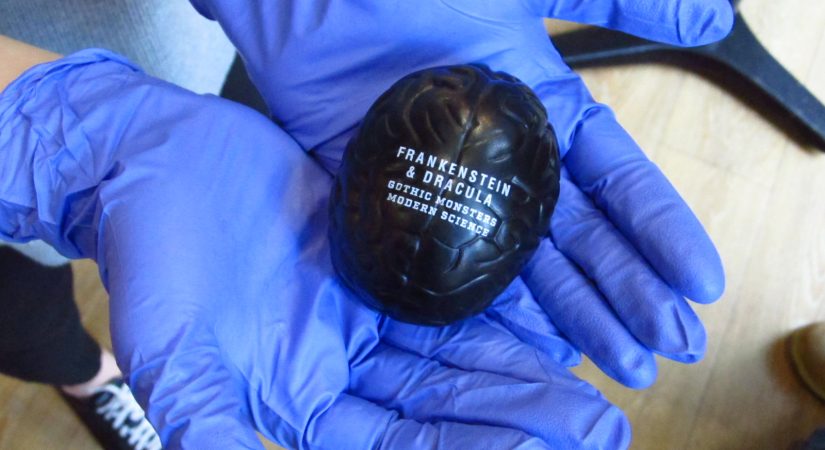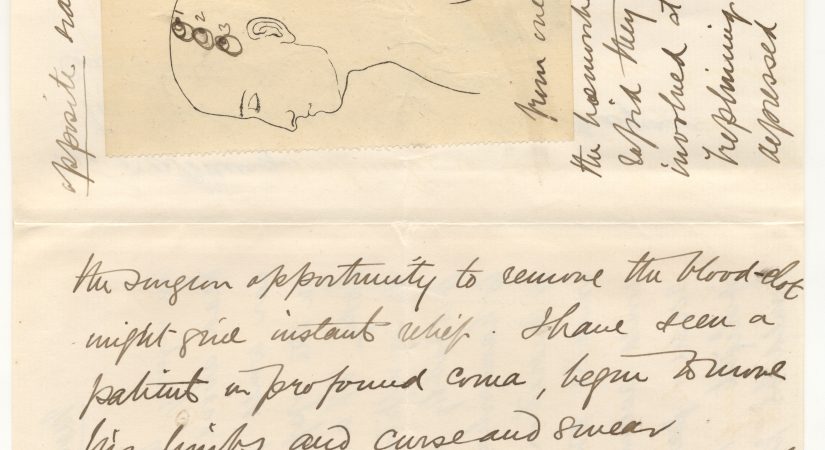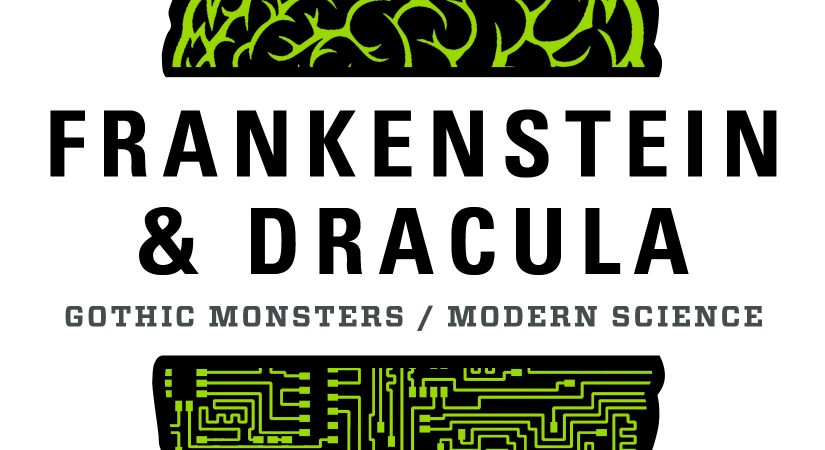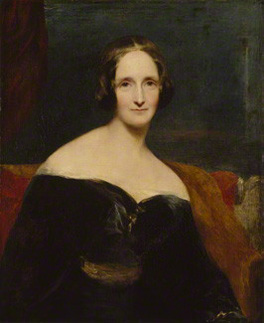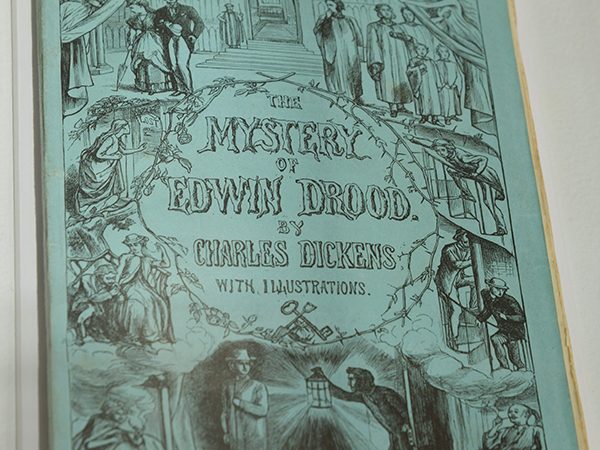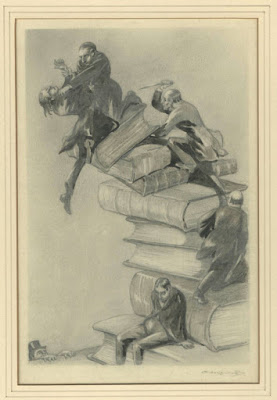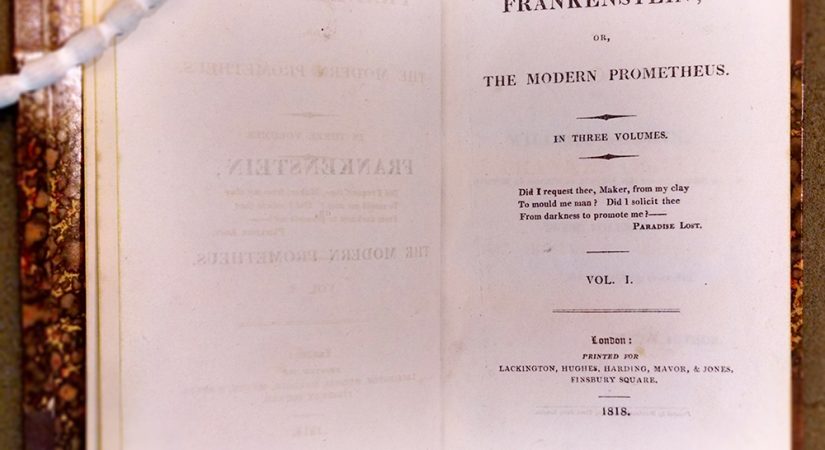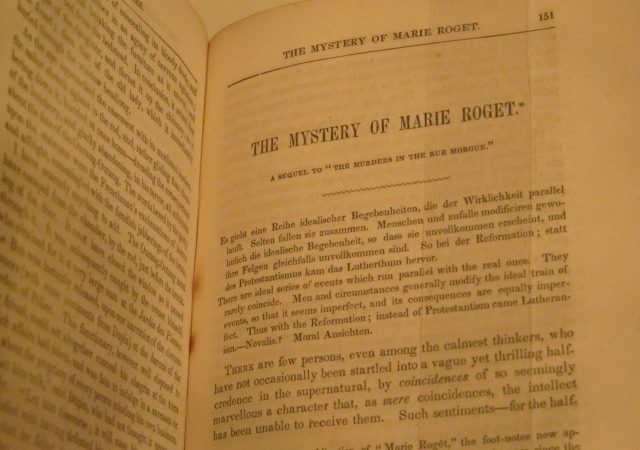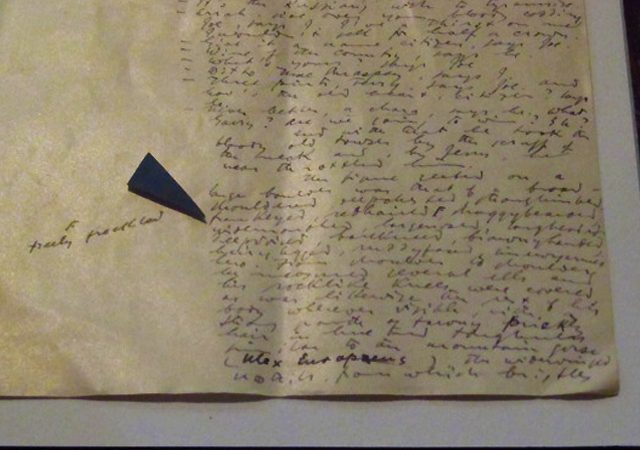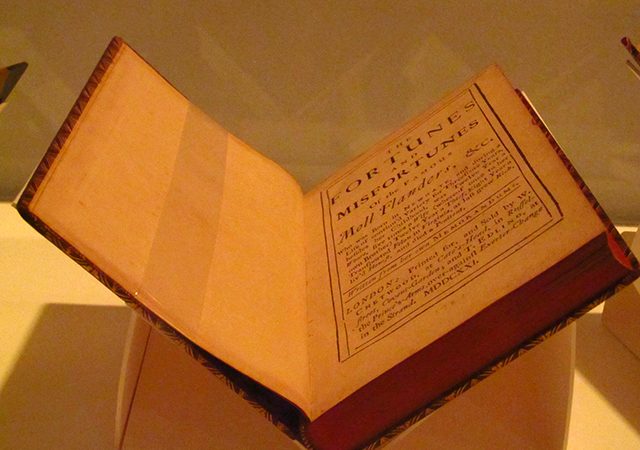In 1803, London was shocked by a public experiment conducted by an Italian scientist named Giovanni Aldini—nephew of Luigi Galvani, whose experiments with electrical currents gave the term galvanism its name. Aldini acquired the body of a recently executed criminal (a perfectly legal transaction, thanks to England’s Murder Act of 1752) and applied electric stimulus to the …
Upcoming Events
The Science of Bram Stoker’s Dracula
Since Frankenstein & Dracula: Gothic Monsters, Modern Science opened on Friday the 13th of October, I’ve fielded a few questions from surprised visitors: Dracula, really? It’s not difficult to see the connection between Frankenstein and the scientific theme of our new exhibition, but many readers are surprised to see us categorize Dracula as another gothic …
The Rosenbach Celebrates 200th Anniversary of Frankenstein with Frankenstein & Dracula Exhibiton
The Rosenbach 2008-2010 Delancey Place Philadelphia, PA 19103 Contact: Sara Davis Phone: 215-732-1600 x 132 Email: [email protected] The Rosenbach Celebrates 200th Anniversary of Frankenstein with Frankenstein & Dracula Exhibiton Pages of Mary Shelley’s handwritten draft of Frankenstein to be displayed alongside Bram Stoker’s notes for Dracula for the first time PHILADELPHIA, September 20, 2017—The Rosenbach …
Mary Shelley’s Indestructible Heart
As the opening date for Frankenstein & Dracula approaches, we’ve been revisiting some of the strange (and occasionally salacious) stories from the lives of the Romantic authors whose dark and imaginative stories inspired two of history’s greatest monsters. A favorite among our staff is the grim tale of Percy Shelley’s heart. When he was just …
The Mystery of “The Mystery of Edwin Drood”
French literary critic Roland Barthes famously published an essay titled “The Death of the Author,” which argues against interpreting literature primarily in light of the author’s politics, religion, or historical context. For Barthes, to prioritize an author’s meaning is to impose a limited interpretation onto a work of literature, rather than considering the many meanings and interpretations …
Bibliomanes and Biblioklepts
“I have known men to hazard their fortunes, go long journeys halfway about the world, forget friendships, even lie, cheat, and steal, all for the gain of a book.”–A.S.W. Rosenbach, Books and Bidders: The Adventures of a Bibliophile (1927) In January of this year, the book world was shocked by a daring theft from a rare …
When Mary Met Percy: A Love Story
What’s a good love story without a little bit of drama? Sure, there’s something to be said of happy couples riding off into the sunset, hand in hand, but what people really want are stories full of pain, struggle, heartbreak, infidelity, poverty, loss, and just enough love left over to keep things interesting. While most …
The Mystery of “The Mystery of Marie Roget”
When we say that Edgar Allan Poe invented the detective story, we may as well say that Poe invented the detective. In 1841, when “The Murders in the Rue Morgue” was first published in Graham Magazine, Boston was still five years away from founding the first professional police detective unit in the United States. Indeed, in creating …
Making a Verbal Monster: Cyclops in Virgil’s Aeneid 3 and Joyce’s Ulysses
For this year’s Bloomsday and the rest of this summer, the Rosenbach’s partner desk display in the historic library is filled with objects that show classic literary influences on James Joyce’s Ulysses. Starting with his introduction (at age 10) to Homer’s Odyssey through Charles Lamb’s school edition, we see that the characters and language of …
How true do we want true crime to be?
I was in graduate school when Oprah Winfrey confronted author James Frey about fabricating portions of his memoir, A Million Little Pieces. Oprah, who had previously defended Frey’s memoir as a meaningful book with or without a strict adherence to the facts, apologized to her viewers: “I left the impression that the truth does not …

